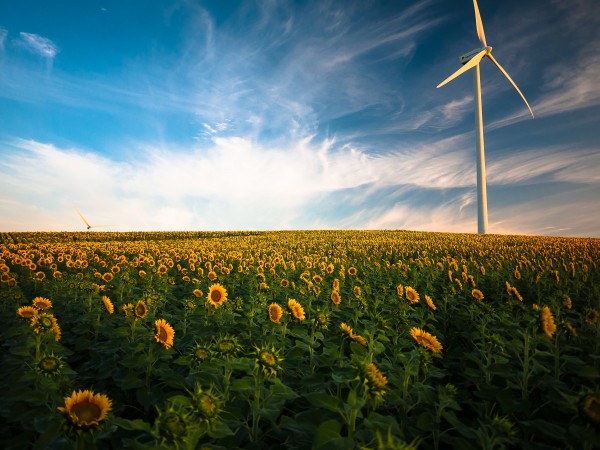GEOG Researchers Co-Author International Report Calling for Immediate Action on Climate Change
In a new report by the United Nations’ Intergovernmental Panel on Climate Change (IPCC), thousands of scientists from around the world—including Professor Laixiang Sun, Associate Professors Kuishuang Feng and Giovanni Baiocchi, Adjunct Professor Klaus Hubacek and Ph.D. student Xiangjie Chen in the University of Maryland’s Department of Geographical Sciences—urge immediate action to reduce greenhouse gas (GHG) emissions in order to avert catastrophic impacts of climate change.
While the report notes moderate successes in climate mitigation at sub-global scales, it also found that in order to limit global warming to a 1.5°C increase from pre-industrial levels—a target set by the 2015 Paris Agreement—global GHG emissions must peak by 2025 and subsequently decrease to net zero by 2050.
“The average annual emission levels of 2010-2019 across all groups of GHGs were higher than in any 10 previous decades—we have a very urgent challenge,” said Sun, who contributed to the report’s second chapter on trends and drivers of GHG emissions.
Feng, who analyzed trends in the decoupling of emissions from economic growth, noted that a common concern about transitioning to a low carbon society is that the economy will suffer. However, he said, it’s “important to demonstrate that GDP growth can coexist with climate change solutions,” pointing to several developed countries which have seen an increase in GDP and a decrease in emissions in the last decade.
For countries whose emissions are still tied with GDP growth, Baiocchi said, “We need to increase their share of renewable energy, increase efficiency, and put a price on carbon.” According to the report, the wealthiest 10% of the global population is responsible for 36%-45% of global GHG emissions, whereas the poorest 10% are responsible for only about 3%-5%.
“Lifestyle changes are necessary, particularly in rich countries and among the wealthy consumers across the world,” said Baiocchi, going on to list easy changes such as refraining from overheating or overcooling homes and workplaces, walking and cycling instead of driving cars, cutting air travel, reducing the use of energy-consuming appliances, and shifting to diets with a higher share of plant-based protein.
Considering such changes is particularly important now, as the world resumes its pre-pandemic activities. While emissions decreased during the pandemic, they are now back to pre-pandemic levels and are expected to rise.
To address that issue, the report authors also offer “bigger-picture” solutions for countries to stay on track with climate targets, such as taking greater care of forests and soil, requiring “zero deforestation” supply chains, creating more walkable cities with expanded public transportation, and transitioning to alternative energy sources.
"If we miss our target to peak emissions by 2025, the climate challenge is going to be nearly insurmountable and the costs extraordinarily high," said Feng. “If we want to [achieve our climate goals], and we have to do it, this is the way we need to do it.”
Read the full report here. Photo by Gustavo Quepón on Unsplash.
ABOUT THE IPCC REPORT
The landmark Intergovernmental Panel on Climate Change’s (IPCC) Report, now in its sixth iteration, reviews and synthesizes the latest climate science literature, provides a comprehensive overview of climate change impacts, future risks and mitigation efforts and suggests actionable pathways toward meeting climate targets.
Published on Thu, 04/07/2022 - 14:50


